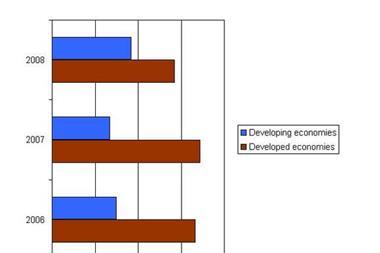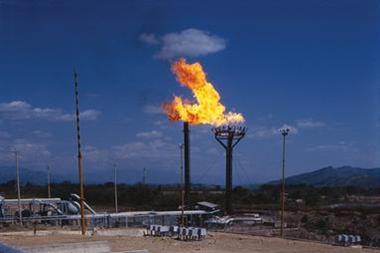Success for extractive industries in resource rich, low-income countries relies on effectively engaging with the local community. But it is not always easy.
See also:Can you dig for wealth and be green?
A growing demand for energy and natural resources has led many low income and resource rich countries to open their borders to foreign investment. Even in the face of a global recession, mining and mineral exploration has continued to chug on.
The problem is, many of the countries where the resources are found lack strong institutions and governance frameworks, because of their position in the developing world. For this reason, it is hard for them to prevent foreign copmanies from exploiting local communities.
As a result, these sectors have a history of harmful environmental and social impacts on local communities. Royal Dutch Shell has been in the news recently for alleged human rights abuses in Nigeria. Shell is accused of being complicit in the November 10, 1995 execution of Nigerian activist Ken Saro-Wiwa and other leaders opposed to Shell’s alleged human rights and environmental abuses in the Niger Delta. The case also includes claims of torture, illegal detainment and crimes against humanity. The company could be forced to pay hundreds of millions of dollars worth of damages.
These kinds of incidents cause serious distress and harm to communities and pose risks to governments, companies and their financiers. For this reason various initiatives seek to provide standards and guidance for the extractors to follow. Some banks even require their clients to meet these environmental and social standards.
“Community engagement can benefit everyone involved, contributing to reduced costs and risks for project proponents while enhancing access to new opportunities for host communities.
Jonathan Lash, president, World Resources Institute
Mining and energy companies should be aware of what is expected of them from shareholders, governments and the general public in order to avoid the financial and reputational impact of being associated with environmental damage, social disruption or human rights violations.
The leaders of most responsible mining and oil extraction projects recognise that a strong relationship with those affected by a project improves the chances of its long term success. After all the local community are the ones who can grant a company its licence to operate. Running a commercial operation in a hostile environment is never going to be easy.
‘Rio Tinto and DeBeers, for example, have negotiated agreements with communities on how to avoid harm,’ said Jonathan Lash, president, World Resources Institute (WRI). ‘In so doing, they have gained strong local support for projects, while communities have seized opportunities for development.’
Even so, according to a new report from the WRI, community engagement efforts by the extractive industries often fall short because of a failure to understand local political and community dynamics, or a failure to fully engage all local stakeholders affected by a project. For this reason the WRI has developed seven principles for effective community engagement (See Factfile below).
Extractive and infrastructure projects both affect and are affected by the environments in which they operate. ‘Community engagement can benefit everyone involved, contributing to reduced costs and risks for project proponents while enhancing access to new opportunities for host communities,’ added Lash. Properly engaging with the local community and getting them onside is therefore a vital part of project risk management.
WRI Principles for Effective Community Engagement
(1) Prepare communities before engaging.
(2) Determine what level of engagement is needed.
(3) Integrate community engagement into each phase of the project cycle.
(4) Include traditionally excluded stakeholders.
(5) Gain free, prior and informed consent.
(6) Resolve community grievances through dialogue.
(7) Promote participatory monitoring by local communities.



















No comments yet